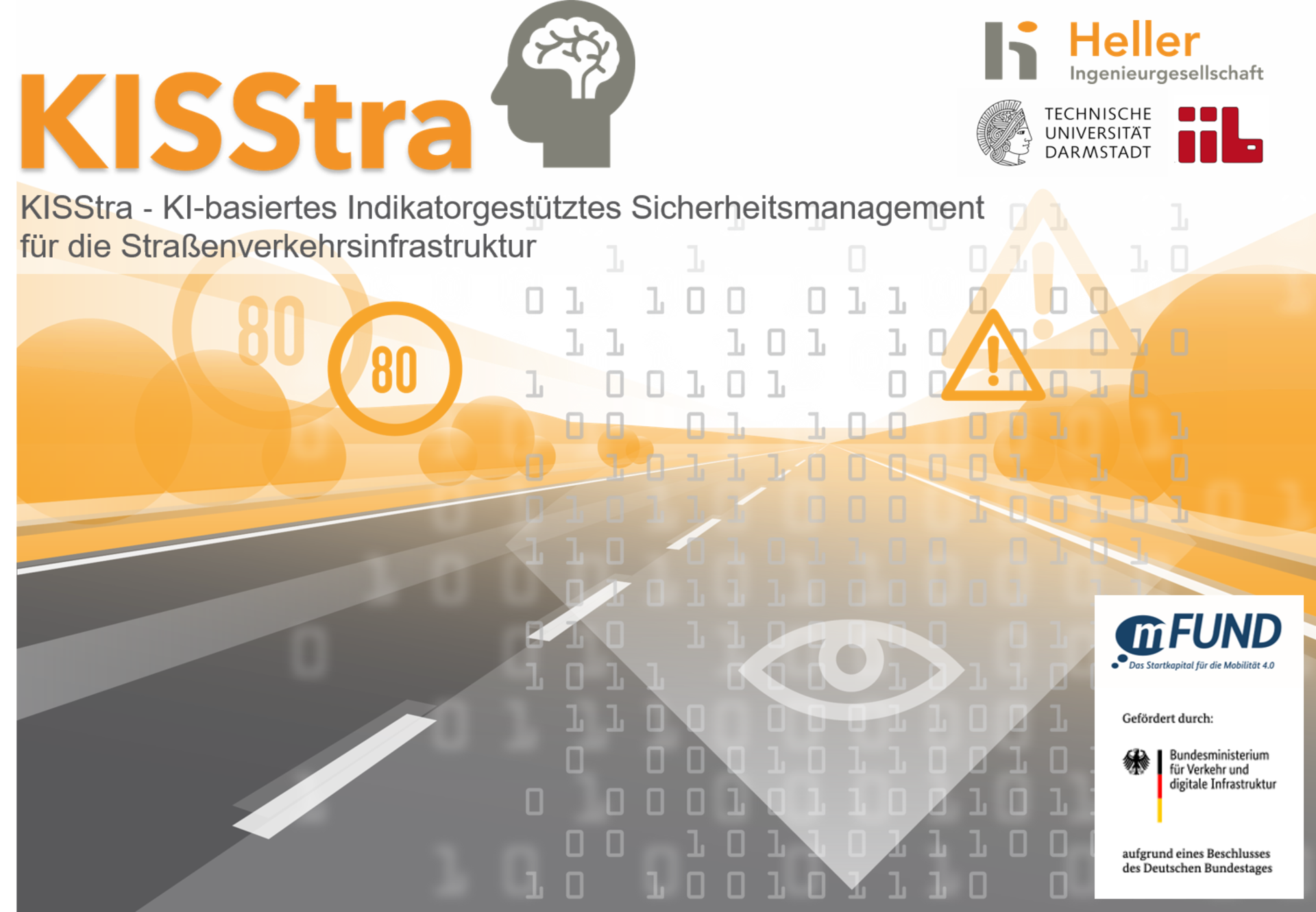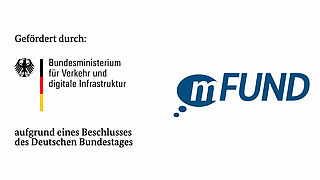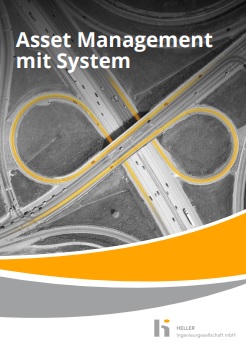KISStra - AI-based indicator-based safety management for road infrastructure.

KISStra is being funded by the German Federal Ministry of Transport and Digital Infrastructure (BMVI) with around 100,000 euros as part of the Modernization Fund ("mFUND") funding initiative. The project was launched on January 1, 2021. The term is 2 years.
Problem
With the EU Directive 2019/1936, which will be updated in 2019, a systematic road safety assessment will become mandatory for all EU states. The safety level of existing roads is to be improved by investing funds specifically in road sections with the highest accident frequency and the greatest accident prevention potential. This requires not only systematic recording of accidents but also, and above all, suitable data on road infrastructure or potential deficits. The collection of this data is very time-consuming and is currently only carried out on an ad hoc basis or at the object level rather than the network level.
Project goal
In line with the EU directive, the KISStra project will investigate the feasibility of a systematic network-wide road safety assessment and develop and validate a basic methodology for the use of artificial intelligence (AI) based on a prototypical implementation. The primary technical goal is to develop the basis for a universal AI-based methodology for the detection, acquisition and provision of selected safety-relevant indicators from images of the road space.
Implementation
In the project, the requirements for a digital safety audit will be investigated and the feasibility in principle will be tested using a prototypical implementation. For this purpose, the AI will be trained for the acquisition of certain indicators (e.g. traffic signs, lane marking, line guidance, stopping sight distance, etc.). Route and roadway surface images recorded as part of the Pavement Condition Monitoring and Assessment (ZEB) process will be used as the image data source. Finally, a rule-based approach will be used to infer possible safety deficits on the basis of the identified indicators.
Future areas of application
In the KISStra project, the foundations are being laid for a network-wide safety audit of roads. With appropriate standardization and further development of the evaluation and assessment methods, regular monitoring of the infrastructure would be possible, e.g. with the roadway images recorded in the four-year cycle of the ZEB. In addition, the inventory and condition information generated with image recognition can be used in many other areas of infrastructure management (traffic, operations, planning and construction).
About the Research Recipient
HELLER Ingenieurgesellschaft mbH is one of the leading European service providers in the field of road maintenance management. For more than 25 years, the team of experienced civil engineers has been supporting public and private clients in the condition assessment and evaluation of transport infrastructure, the development of appropriate maintenance strategies, the planning and prioritization of maintenance measures, and organizational development in the context of the asset management system in accordance with ISO 55001 and Building Information Management (BIM).
The Institute for Numerical Methods and Computer Science in Civil Engineering (IIB) at TU Darmstadt has been working on digital transformation in the construction and environmental sectors for some time) and has profound knowledge in this area with AI methods, Internet of Things (IoT) and Building Information Modeling (BIM).
About the BMVI's mFUND
As part of the mFUND research initiative, the BMVI has been funding research and development projects related to data-based digital applications for Mobility 4.0 since 2016. In addition to financial funding, the mFUND supports networking between stakeholders from politics, industry and research with various event formats as well as access to the mCLOUD data portal. For more information, visit www.mfund.de.



